It’s a sunny 28C July day – the sky overhead is a brilliant shade of blue, the glistening ocean fringed by palm trees is a welcoming 24C, and it’s clear to Andrew Nicholson that he’s no longer in his chilly home state of Tasmania.
The 75-year-old from Bruny Island has found a rewarding way to escape the cold, dark days of Tassie’s winter, working as a volunteer with animal welfare charity Vets Beyond Borders at Te Are Manu veterinary clinic in the Cook Islands.
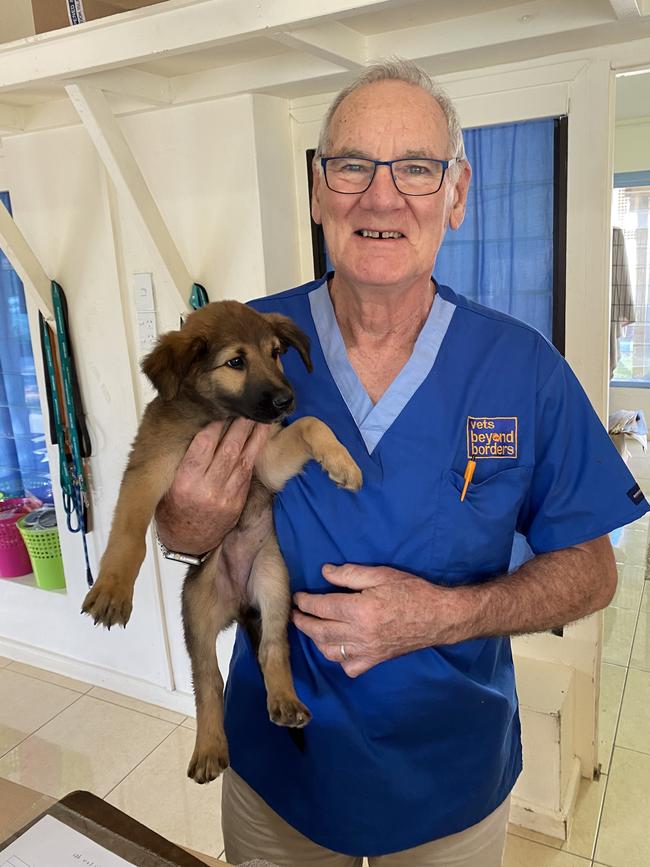
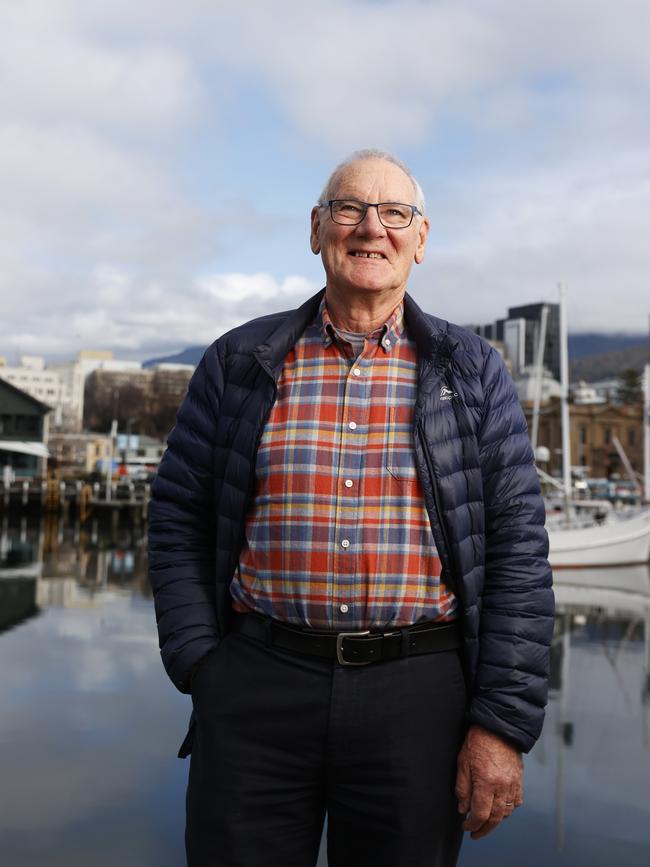
Nicholson, who established Montrose Veterinary Centre in 1978 and worked as a vet in Tasmania for more than 40 years before retiring about four years ago, has recently returned from a four-week stay in Rarotonga – his second volunteer stint in the South Pacific nation in recent years.
The days at Te Are Manu are busy but the pace is more relaxed than a typical Australian vet clinic, as things are done on “island time”. Nicholson says some days might start with an overflowing appointment book with 15 or 20 patients booked in, but then there will be no-shows and delays, as some animals are flown in from surrounding islands to be treated. Other days start with very few appointments, but the clinic ends up with a full book by the end of the day.
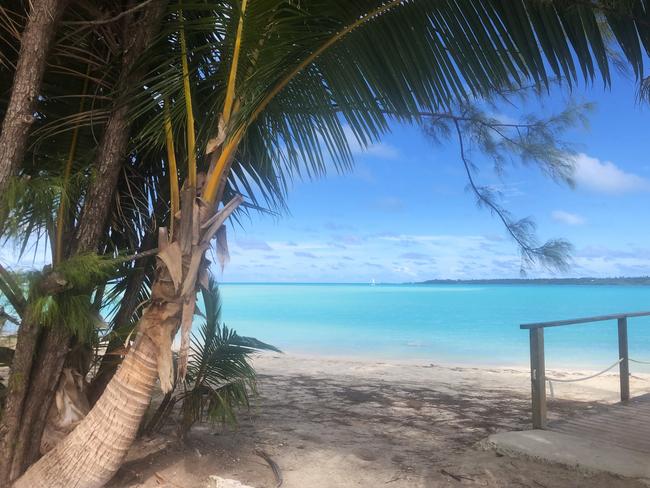
The aim of Te Are Manu, and Vets Beyond Borders more broadly, is to improve the standard of animal welfare by providing animal care and awareness programs in communities where they are needed most.
Vets Beyond Borders recruits highly experienced volunteer vets and vet nurses, deploying them into remote communities across Australia and overseas – in countries including Fiji, Vanuatu, Samoa, the Philippines, Indonesia, Cambodia, India, Bhutan, Sri Lanka and Nepal – to work with local authorities to provide quality animal care.
The Te Are Manu clinic – which is the only vet clinic in the Cook Islands and is locally owned and operated with assistance from Vets Beyond Borders – sees lots of dogs and cats, as well as goats and pigs, while Nicholson has also encountered more unusual wildlife including turtles, sea birds, tropical birds and coconut crabs during his time there.
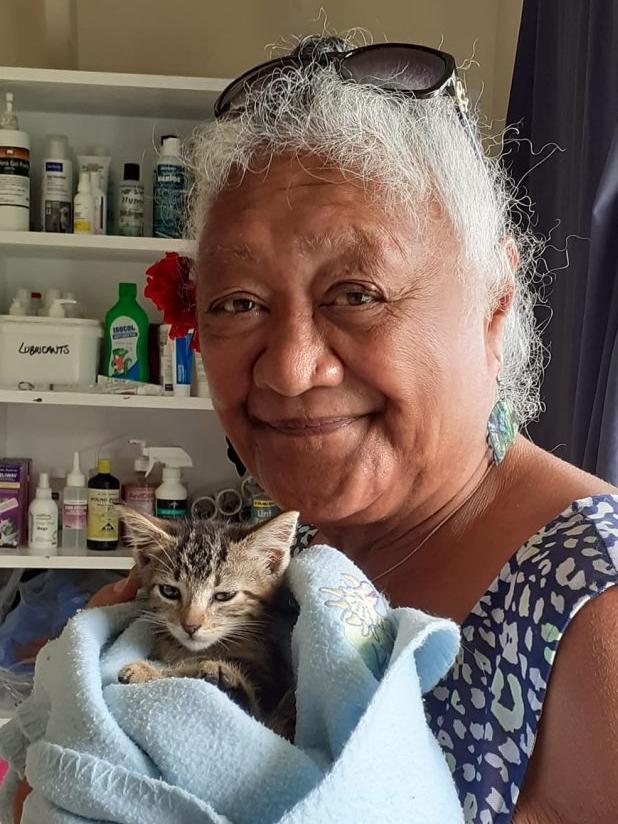
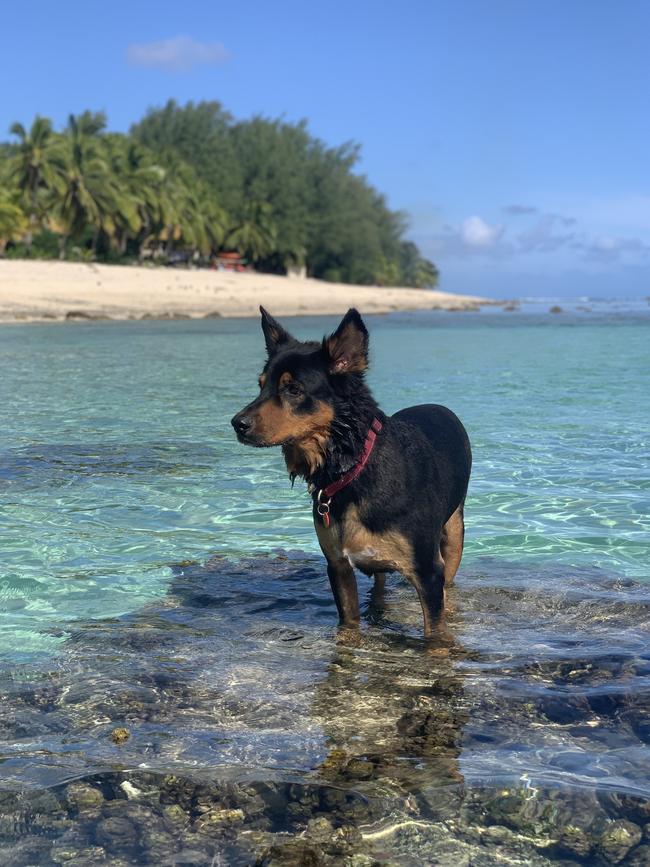
The clinic services all 15 islands that make up the Cook Islands, with makeshift clinics run regularly on the outer islands – the closest island to Rarotonga is about 40 minutes by air, while the furthest is about 2.5 hours by air.
Each island has its own set of challenges – Aitutaki has no dogs, for example, but has a huge cat population. The island has about 1800 human inhabitants but about 3000 or 4000 cats. There’s an active desexing program in place, in a bid to reduce cat numbers and reduce the toll on local birds and other wildlife. Desexing dogs also keeps vets busy – Nicholson says despite the large numbers of free-roaming dogs the animals are particularly docile.
“There’s a huge population of dogs and cats throughout the islands, apart from one island that has only got cats,’’ he explains.
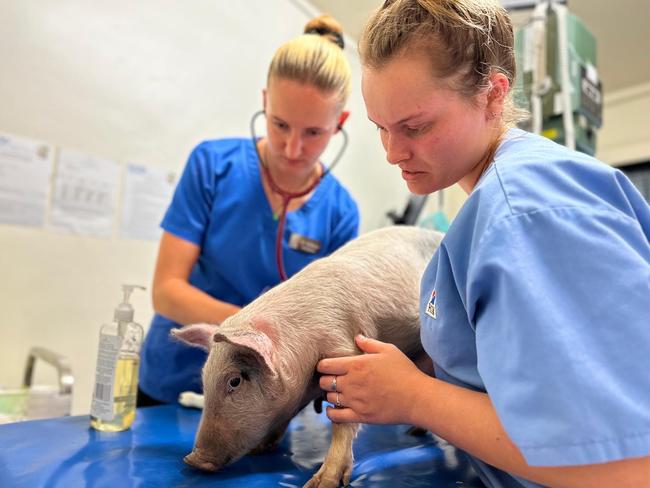
“Very few people actually own dogs or cats as we would understand it. It’s more of a community thing. Every house you go by there’s three or four dogs, they’re almost free-ranging, but if something happens to them someone will take responsibility for it. Most animals are brought in because someone has taken responsibility for them.’’
As a result, vet care is provided a little differently than it would be in Tasmania.
“There’s often very little after care, because they are free-ranging – imagine trying to put a cast on an animal or care for a wound,’’ Nicholson says.
“So we adjust the way we work to fit in with local cultural conventions.’’
Nicholson says there’s not a huge agricultural economy in the Cook Islands, but “every little farm has its own pig or goat” and there is one horse on the entire island of Rarotonga.
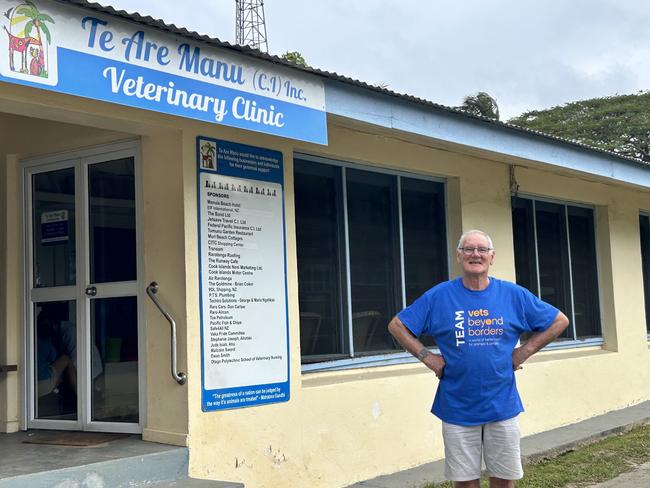
Volunteers at Te Are Manu work in partnership with the Ministry of Agriculture – the two are co-located on the same block – and during his recent stint volunteering in the Cook Islands Nicholson recalls there was an avian influenza scare with lots of sick and dying poultry.
It didn’t turn out to be bird flu, but it’s a good example of the unpredictable nature of the job and the sorts of things visiting vets need to be on the lookout for.
Fish poisoning is also something seen in pets in the Cook Islands and there is a huge heartworm problem, which is something Nicholson and other vets spend a lot of time treating and trying to prevent.
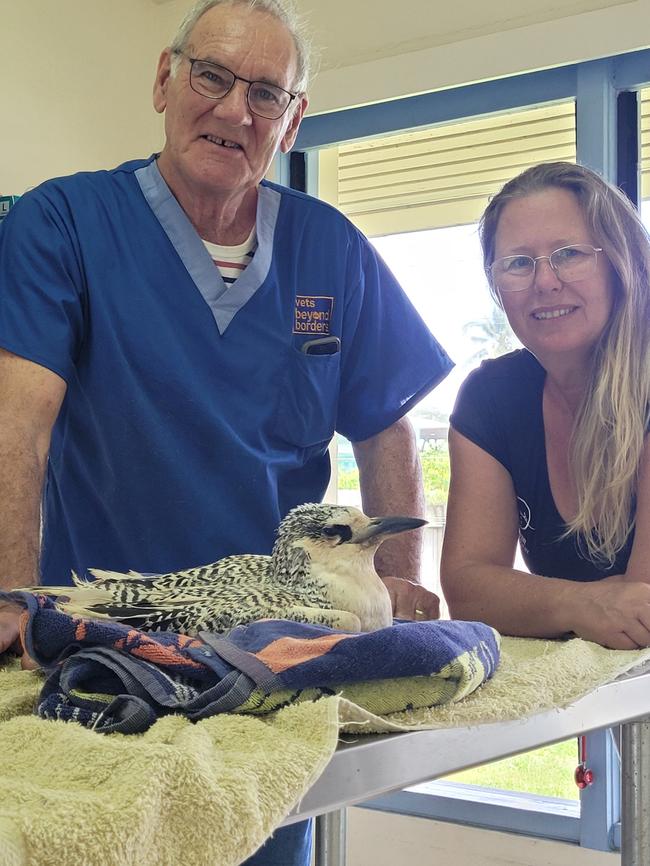
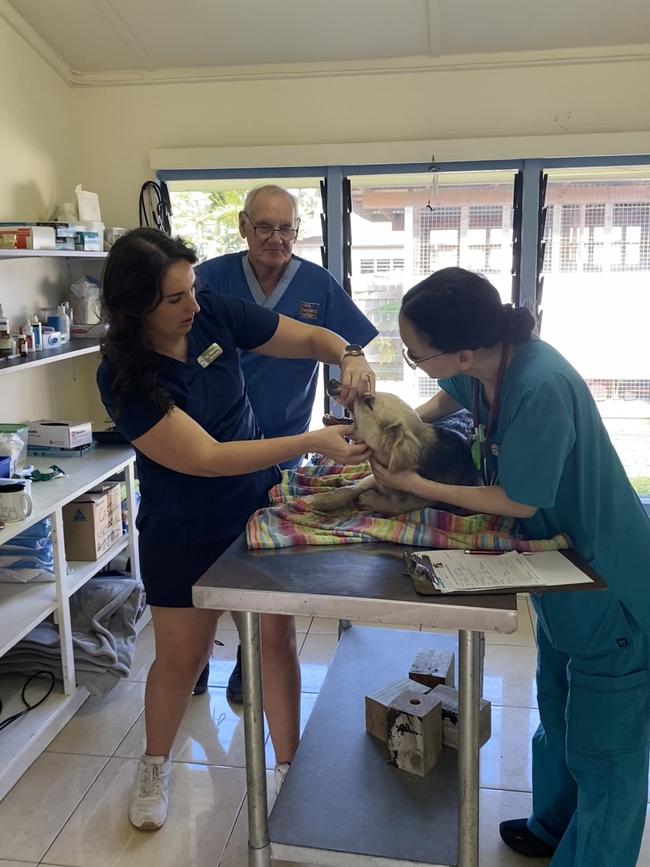
On the flip side, many of the infectious diseases prevalent across the globe – like parvovirus and foot and mouth disease – do not exist in the Cook Islands.
Vets are more likely to see animals with penetrating grass seeds, or skin problems like flea burdens or flea allergy dermatitis, exacerbated by the warm climate.
Te Are Manu is basic but well-equipped, with gas anaesthesia, a dedicated surgery room, a digital X-ray machine, dental equipment, IV fluid pumps, on-site kennels for hospital in-patients and a pharmacy. The only employee is the clinic’s medical director, while reception staff, vets and vet nurses are all volunteers, with vets typically staying for three to four weeks at a time.
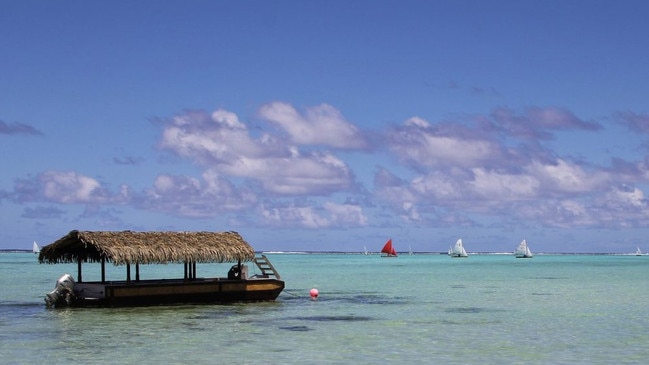
Volunteers like Nicholson are required to pay for their own flights. They can book private accommodation or access shared accommodation at the staff house, a “basic but adequate” dwelling which is right near the water and is a short walk from the vet clinic.
Sometimes during Nicholson’s time in the Cook Islands he has been the only vet on duty, other times he has worked alongside a team of vets and vet nurses.
When flying over to the Cook Islands, Nicholson and other volunteers take a good quantity of medical supplies with them to ensure the clinic is well stocked.
“The clinic relies very much on donations so you really never know what sort of drug resources you’re going to have when you get there,’’ he says.
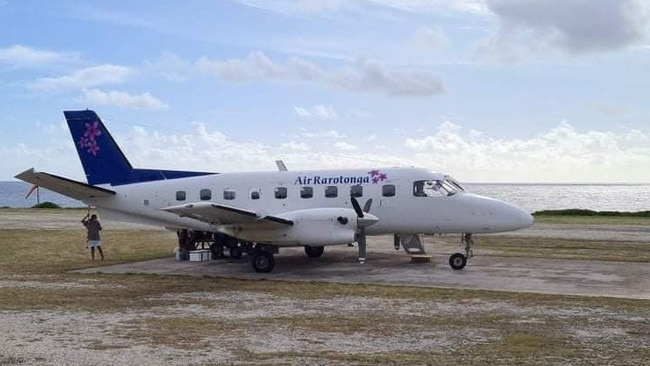
“In the couple of years since my first visit the level of equipment has improved quite a lot. Volunteers take stuff with them, disposables and drugs. They are the most important things, you can’t sort of pack an X-ray machine or ultrasound equipment.’’
He says the facilities are “basic but adequate for the case load they have”.
“The only thing lacking is an orthopaedic area … you do see orthopaedic fractures and road accidents and those sorts of things,’’ Nicholson says.
“And I did do quite a lot of soft-tissue surgery.’’
Of course not all vet care is provided at the clinic, with Nicholson and other volunteers also travelling the islands and working in the open air in makeshift clinics.
“There’s effort made to try and get to all the islands at least once a year,’’ Nicholson explains.
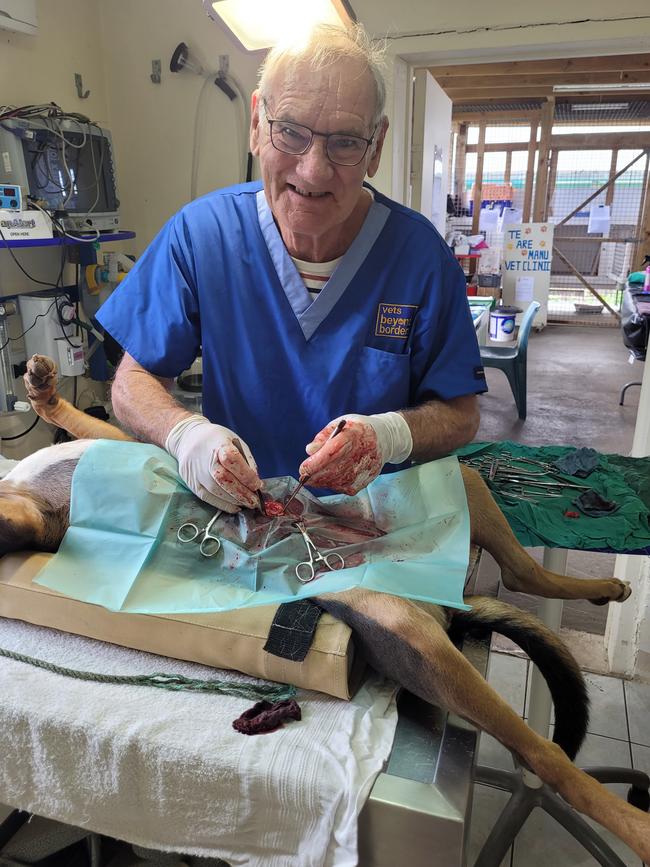
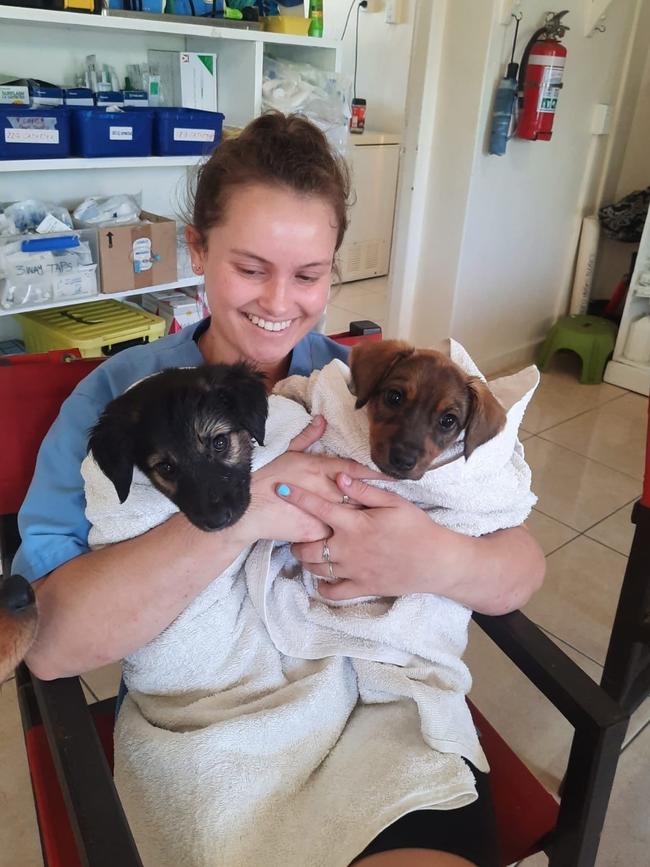
“Most of my days were spent at Te Are Manu, then about every month or so they try and do an outreach clinic, where you pack all the gear up and go out to one of the regional areas. The first time I was there I did one clinic on Rarotonga, in one of the areas away from Avarua, the capital. I saw 20-25 animals that day in a fairly crude shelter at a football club.’’
Vet care is provided on a donation system, and it’s not uncommon for locals to pay their way in fresh produce or handyman services rather than cash.
“We work on a donation system,’’ Nicholson explains.
“It’s grossly different to what we’re used to in Australia. The basic suggested donation is about $20 in Cook Island dollars. It’s a quarter to a fifth of what it would be in Australia or New Zealand, but it’s what people can afford. And it doesn’t necessarily have to be in currency – people donate time, they help mow the grass at the clinic, they help with maintenance and cleaning up around the place. While I was there we were not infrequently paid in mangoes or bananas or paw paws … the staff house was always well supplied with tropical fruits and vegetables. The attitude is ‘pay what you can afford’, it’s certainly not an enforced thing.’’
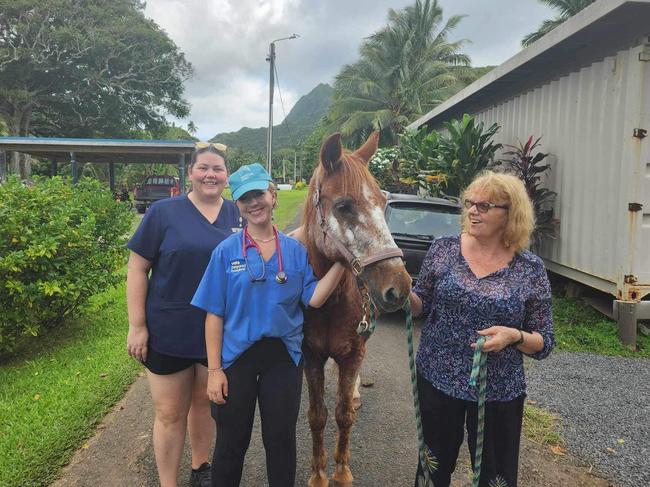
Nicholson says lots of tourists come and give donations, and there is also an expatriate population in the Cook Islands which helps support the vet service. And locals are very grateful for the care provided by Te Are Manu.
“That’s the one thing I noticed, all the time, that people were forever thanking us for what we were doing,’’ he says.
“They really appreciate it, it wasn’t just a perfunctory ‘thanks very much’, there was appreciation that we’d come a long way, that we’d paid for our own accommodation and airfares – it is heartfelt. One thing about the Cook Islands, and I’ve been there three times now, is that the culture is very friendly and welcoming and it’s a truly, receptive and friendly society. It’s a lovely place to be.’’
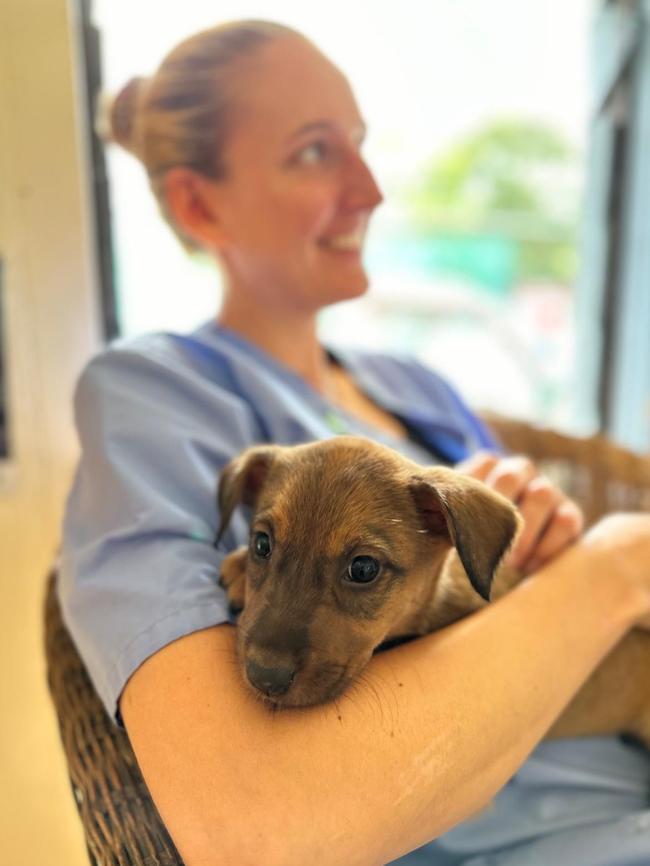
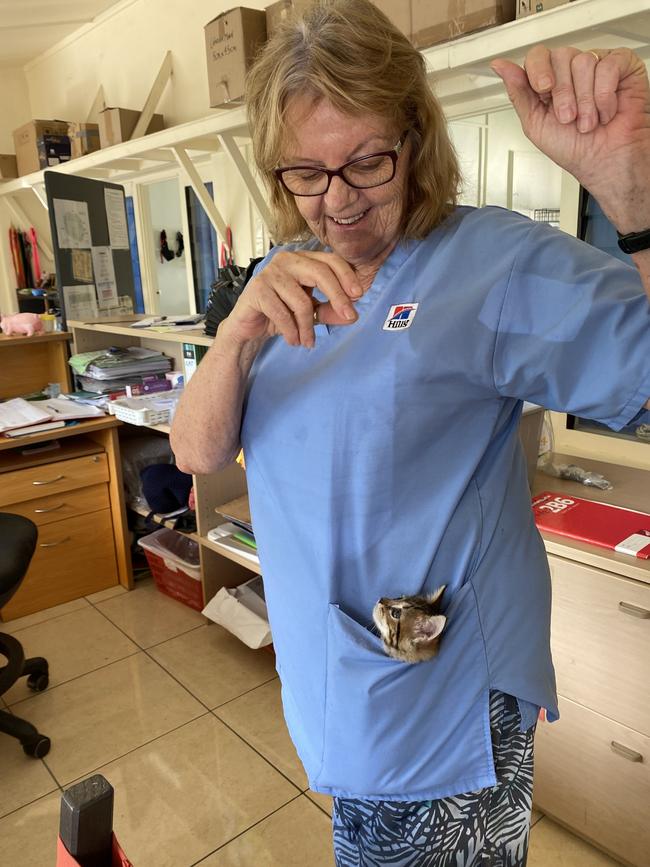
He finds it greatly rewarding working with other volunteer vets and vet nurses – he has crossed paths with staff at Te Are Manu that hail from countries including New Zealand, Canada, Belgium, Switzerland and Slovenia, just to name a few.
“A lot of these people have done a lot of volunteering in a lot of different countries, so it’s lovely to exchange experiences with everyone else over there,’’ he says.
Born in Hobart, Nicholson initially went to the University of Tasmania to study agriculture.
“At the end of the first year I realised my interests were more on the animal side of thing, and the course I was doing was more horticulture focused,’’ he recalls.
So he applied for a federal government scholarship and was accepted to study veterinary science at the University of Sydney.
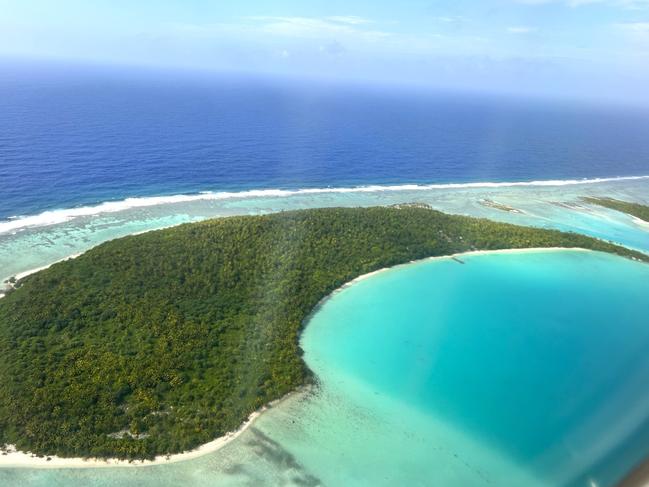
After graduating in 1972, he worked in South Australia, for what was then the commonwealth department of primary industries, as part of the meat inspection service at abattoirs. He then worked as a partner in a vet practice in rural Victoria, before returning to Tasmania with his wife and children, where he worked as a district veterinary officer with the state government, in Oatlands, for a couple of years before starting his own clinic at Montrose.
In the early days it was just Nicholson running the vet clinic – he lived next door and it wasn't uncommon for someone to ring the emergency bell in the middle of the night.
His was one of the first vet practices in Greater Hobart – and the business grew quickly. By the time Nicholson retired four years ago, the practice had up to nine full-time equivalent vets and had branched into New Norfolk.
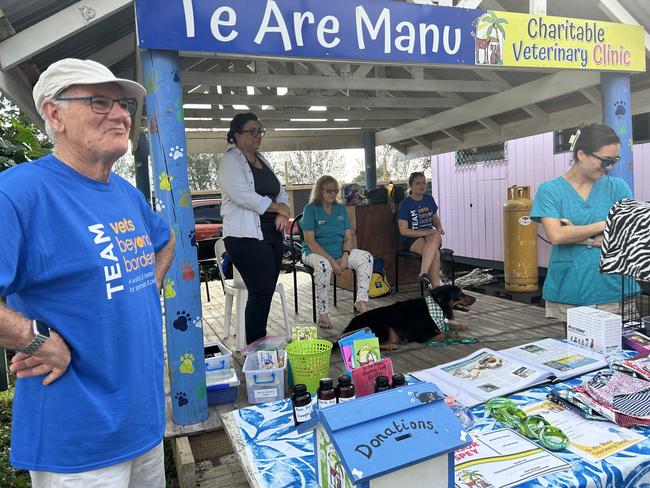
Despite his long and successful career, the well-respected vet actually considers his work in the Cook Islands to be one of the biggest highlights of his career – but never imagined such a highlight would come after retirement.
He initially became interested in the idea of volunteering after hearing from colleagues who had enjoyed working in various countries.
“I’d had colleagues that had done similar things for quite a long time, and I had employed quite a few people who had done these sorts of things overseas,’’ Nicholson says.
“It felt like a great way to continue to do a little bit of vet work and also give back a little bit.
“I was fairly heavily employed in full-time practice for most of my career, so it’s lovely to do this on a volunteer basis. I can choose when I go, and the Cook Islands in the middle of our winter is quite pleasant.’’
Nicholson jokes that he “retired about four times” and initially found it difficult to step away from his veterinary work.
He was booked to go to the Cook Islands for his first stint as a volunteer in 2020 but then the Covid pandemic hit and those plans had to be put on hold.
So when international borders finally opened in 2022, Nicholson and his wife Sandy decided to visit the Cook Islands for a holiday instead.
And while there, Nicholson made contact with the director at Te Are Manu, to have a look around and discuss future volunteering opportunities.
Nicholson was planning to finish his holiday and then return to the clinic a few months later for his first stint as a volunteer.
But on the final day of his holiday the clinic’s director got in touch and asked if he could return within a few weeks.
So Nicholson flew home to Tasmania, got organised, and flew back to the Cook Islands for a three week placement at Te Are Manu in July 2022, trading Tasmanian’s winter for some time in the tropics. He loved the experience so much he returned to volunteer again this year, spending a fascinating four weeks in the Cook Islands before flying home to Tasmania in mid-July.
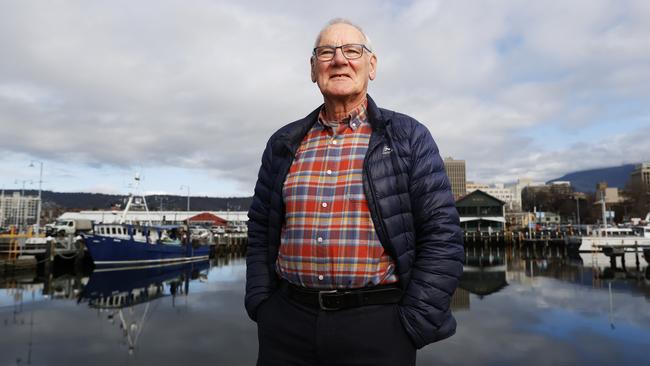
“This has probably been one of the highlights of my whole career,’’ he says.
“Because you’re doing something completely different but using skills you’ve already acquired. My vet career has been very rewarding to me. And it’s all I’ve really done as a job – unlike most people these days I haven’t changed jobs, although I’ve done a lot of different things over the years (within the veterinary realm).
“So this is an opportunity to do something a little bit different and there’s also that ability to give back which I really enjoy.’’•
For more information about Vets Beyond Borders visit vetsbeyondborders.org.
For more information about Te Are Manu visit tearemanu.com

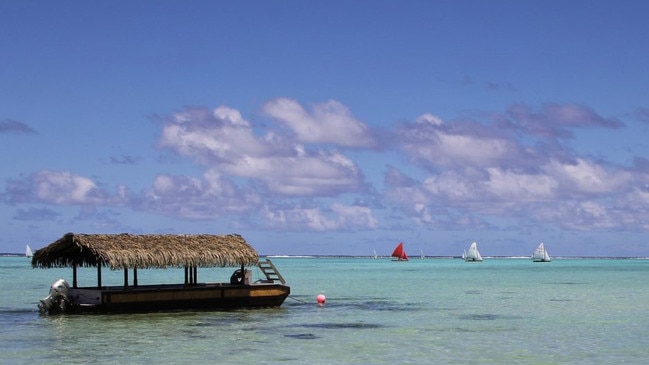
Add your comment to this story
To join the conversation, please log in. Don't have an account? Register
Join the conversation, you are commenting as Logout
NW restaurant offers delicious dishes with a breathtaking view
Beachside dining is often a burger type of arrangement, so to have access to food this good, with a killer location, is a rare find, writes Alix Davis.
Global success for unlikely Tassie painter
She’s been declared a “name you need to know in Australian art”, landing a major award, multiple exhibitions and a Paris residency. But Tassie’s Marion Abraham never expected to become a painter.